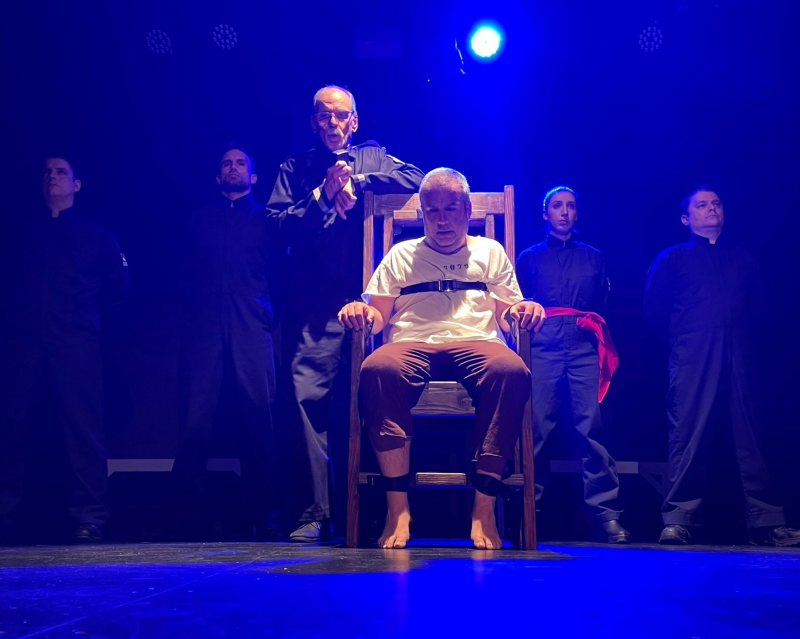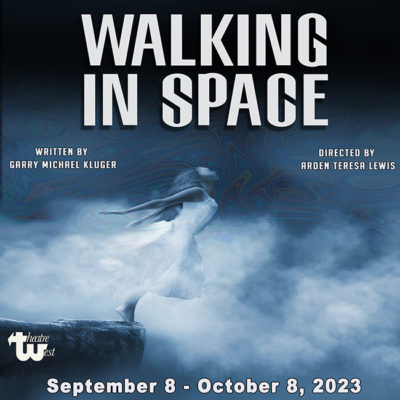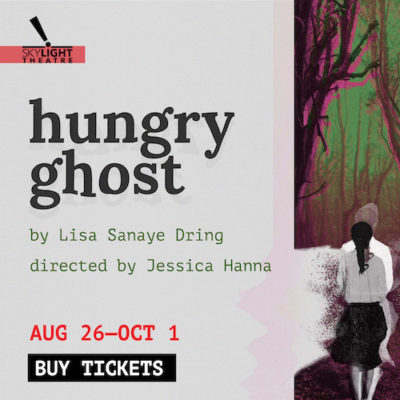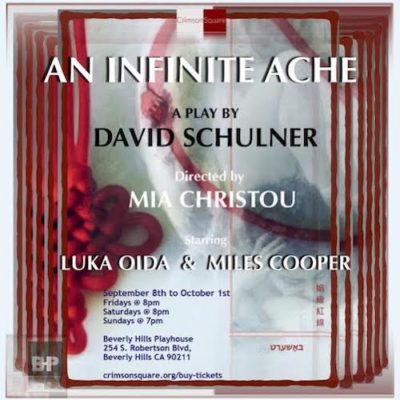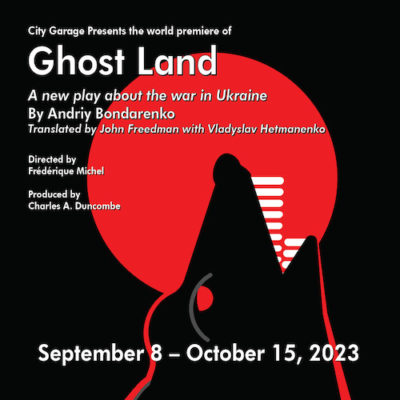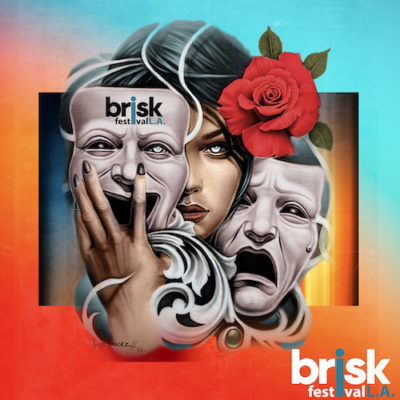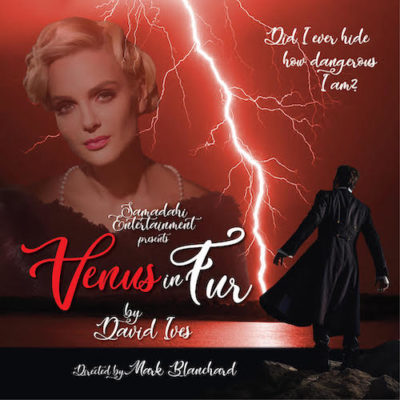1984 The Chair
Reviewed by V Cate
Front Row Center & Eclipse Theatre LA at The MAIN
Through March 26
RECOMMENDED
George Orwell’s dystopian classic may have been written with direct inspiration from the Second World War, but his final novel has endured with vim ever since its first release. And with good reason. Exploring the pitfalls of nationalism, the nefarious ways in which corrupt governments curate exploitation of civil liberties, and (most famously) the insidious nature of mass surveillance, it’s difficult to imagine (and disheartening to admit) that 1984 is more timely now than ever.
Even if you’ve not read the book, a familiarity with the themes and specifics (“Big Brother”) has become part of our social vernacular. This is perhaps the greatest achievement of the work, as it deals so largely with the idea of linguistic relativity, or the principle that the structure of language influences its speakers’ worldview and that people’s perceptions are relative to their spoken language. In the book and play, curation of language is used with insidious precision to disallow freedom of thought. In life, we see 1984 as an example of the vitality of art in its shaping of culture at large and individual understanding of the world around us.
Our protagonist is Winston Smith (Chris Loprete), a sort of Everyman who, by day, works revising history at the Ministry of Truth. His free time is largely spent repressing his festering dislike of Big Brother and Oceania (one of the three nations that are in constant war in this unenviable but totally believable future/past).
Things become complicated when he meets Julia (Briana Bauer). If Winston is just-some-dude who adequately sublimates his hatred of the establishment, Julia is the totem of the feminine erotic. In a society where any individual thought is a thoughtcrime, and in which rigid rules are held regarding sexuality and love, Julia has found a way to act out some kind of personal autonomy and get off in the process. Publicly, she grandstands with a nationalist fervor, but privately she seeks out party members to seduce, even as she wears an anti-sex sash.
Unlike Winston, Julia has no thought of the bigger picture. Her rebellion is a personal one. Throughout their deepening relationship, she smuggles real coffee, sugar, and other sensory pleasures to share in their lovenest hideout, while the feelings and sensations of romance awakens within Winston a calling to fight for the greater good — even at their personal peril.
Orwell’s book unfolds with a linear timeline, but Michael Gene Sullivan’s adaptation stages the actions within a prolonged imprisonment, with interrogators and Thought Police members acting out the characters and reciting exposition and internal monologue from Winston’s diary. It’s a wise theatrical device that really creates space for a director to shine, and Eric Clarke does so. Clarke tells the story clearly, creates compelling stage pictures (Loren Burghout & Brad Peach’s successfully simple set consists merely of four stark benches and sometimes a chair), and plays to the strengths of the ensemble and the space.
The cast performs with good pace and precision. Loprete humanely relates Winston’s sensitivity and weakness. Loprete is nuanced as the feminine voice of the piece. Doug Traer as O’Brien is marvelously malevolent, his characterization disconcertingly believable.
Artistically, this work has been percolating from the time of the 1943 Tehran Conference, but it remains imperative that audiences interact with the work now, even if it is uncomfortably resonant.
Front Row Center & Eclipse Theatre LA at The MAIN, 24266 Main St., Santa Clarita; Fri.-Sat., 8 p.m.; Sat.-Sun., 2 p.m.; through Mar. 26. https://www.eventbrite.com/e/1984-presented-by-front-row-center-eclipse-theatre-la-tickets-525271660677. Running time: two hours, with one 15-minute intermission.


